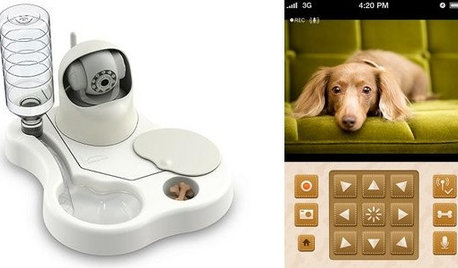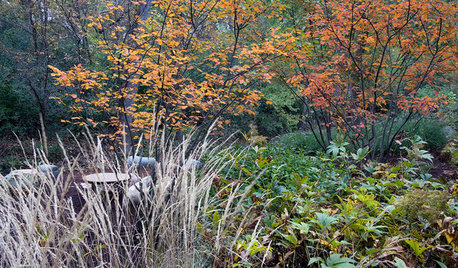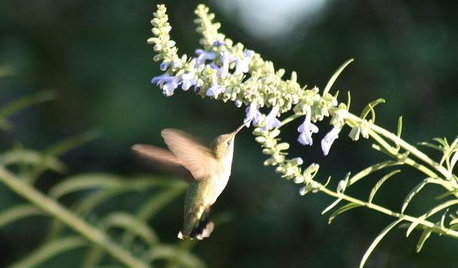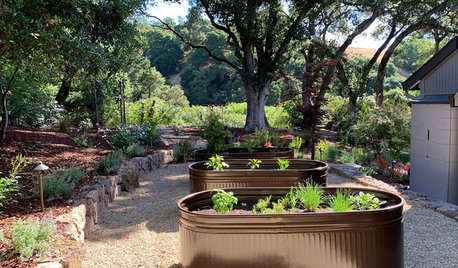Let's start with a brief explanation of why you should not be feeding your fish during winter.
As the water cools in the autumn, the fish start slowing down in preparation for a period of semi-dormancy. Their digestive and immune systems slow down, and they are not capable of digesting the same types of foods that they can during the warmer months. Koi are particularly susceptible to problems at this time, as they have no stomach to aid in digestion; food passes directly into their small
intestines, where it will sit and rot. The ensuing intestinal bacteria can pass into their bloodstream, causing sepsis which will debilitate or even kill the immune-suppressed fish.
The general rule of thumb is to slow feeding when the water starts to cool into the upper 50s farenheit, feeding small amounts of low protein food a few times a week, and to quit feeding altogether when the water reaches 50. (A thermometer can be purchased for minimal cost and should be suspended in the pond, about 18 inches deep.) If the fish are still hungry, they'll find algae and other natural delights to sustain them, and these simple foods found in the pond will be more easily digested.
The above rule, however, applies only to those of us who live in a climate with cold winters. Those living in climates where the water hovers around the 50-55 degree mark have a challenge. As stated, the fish's immune systems are not working up to par at lower temperatures, however, many "bad" bacteria are still active at these temperatures and can create problems in the weakened fish. In these cases, a small quantity of medicated food fed once or twice a week can help the fish withstand the bacterial attack. (Some people also salt their pond at this time as a prevention against parasites that are still active at lower temperatures. There is good information on the Koivet website on salting the pond.) If you feed your fish during this time, be sure to monitor ammonia levels, as the fish will be giving off ammonia in their waste and the bacteria in your biofilter will not be working at these low temperatures. (When testing winter water, always warm the water sample to room temperature before testing.)
As the water warms into the fifties in the spring, you can slowly start feeding again. Beware the false spring syndrome! Many people are excited at the prospect of the first warm spring-like days and the increase in fish activity, and begin feeding, only to find the temperatures plunging into the thirtys within days. *BE PATIENT* and wait until you're sure your water temperatures are stable before you begin
feeding.
Once the water reaches a stable 50 degrees Fahrenheit, it is a good idea to start feeding with a small amount (two or three times a week for no more than three weeks) of medicated food containing Romet or Terramycin, supplemented by low protein, high carbohydrate foods such as wheat germ, cooked squash, brown bread, dark greens (not iceberg lettuce), and fruits high in Vitamin C. As the temps head into the higher 50s, start adding a bit of low-protein pellets to their diet, and increase feedings to four or five times a week if the fish are hungry. As the water heads into the sixties, start increasing the protein in their food. By the time the water is 65-72 F the majority of their food should be a good quality, high-protein food. Avoid foods that contain corn and other plant proteins as primary ingredients; the protein should be from fish or seafood to ensure the fish are getting the proper balance of amino acids that they need to thrive. Fruits, vegetables, shrimp and other live foods can also be given during the warm, active months of the year.
Observe your fish closely during spring warm up, as this is when they are most susceptible to bacterial and parasitic invaders. Do NOT overfeed, and be sure to scoop out any uneaten food so it doesn't foul the water. It is best to err on the side of under-feeding and allow your fish to eat the easily digested algae that is often prolific at this time of year, rather than over feed the wrong foods and cause additional stress to your friends as they make the often difficult spring-time transition.
Ronaye, Steve and David













Related Discussions
When do I stop feeding my plants?
Q
How should I clean my pond? When should I clean my pond?
Q
Do I need a filter for my pond? When do I start/stop my bio-filter?
Q
When should I start using fertilizer on my mango trees again
Q